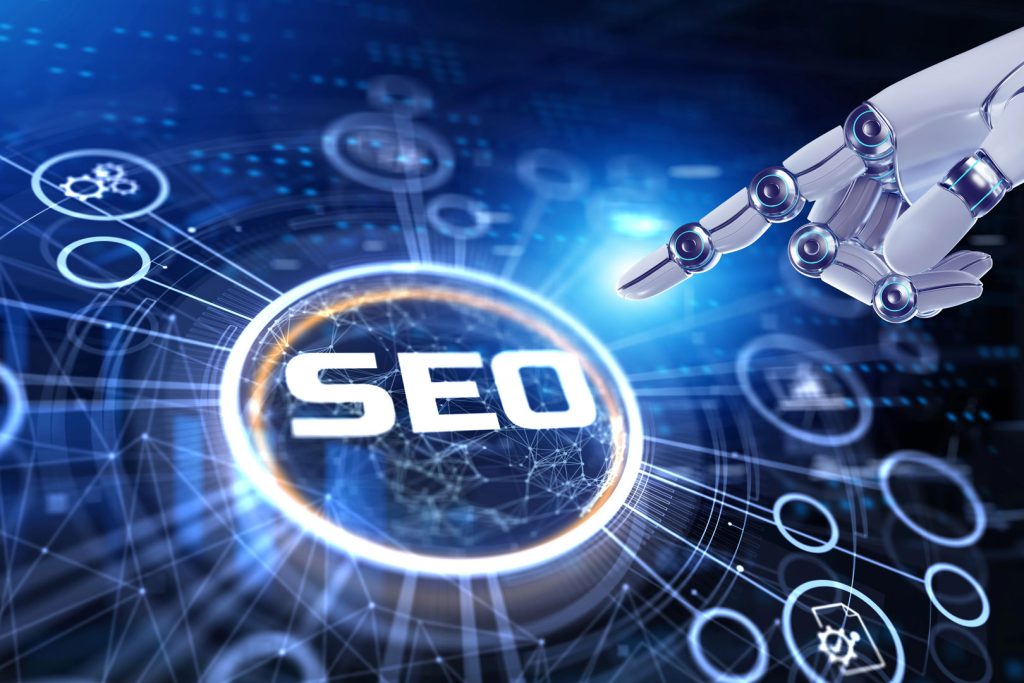A Web Developer’s Perspective
As a web developer working directly with businesses, I’ve observed significant changes in how search engines interact with our websites. In this post, I’ll share my insights on the changing landscape of SEO and what it means for businesses in 2025.
The Shifting Tides of Search Traffic
From my client analytics data, I’ve noticed a clear trend: websites without active SEO strategies are experiencing declining search traffic. Even for clients with ongoing SEO efforts, growth rates noticeably slowed during Q4 2024. This trend aligns with broader changes in the search landscape, particularly Google’s increased emphasis on AI-driven features.
The Rise of Specialized Search Platforms
The days of Google being the only gateway to online discovery are over. While Amazon and YouTube have long been recognized as specialized search engines, I’ve seen significant traffic coming from platforms like Facebook Marketplace and Kijiji in the Canadian market. These platforms are increasingly becoming the first stop for users looking for specific products or services, bypassing traditional search engines entirely.
Building Trust Through Authentic Content
One of the most effective SEO strategies I’ve implemented for clients involves leveraging customer testimonials in long-form format. These testimonials naturally incorporate relevant keywords while providing unique, authentic content that search engines value. This approach aligns perfectly with what Google calls “Information Gain” – content that offers new and unique insights rather than repeating existing information.
The New SEO Paradigm
Based on current trends and my experience, here are the key areas businesses need to focus on:
- AI Integration and Content Strategy
While AI tools can help with content creation, they shouldn’t be the sole driver. Through my client work, I’ve noticed a concerning trend: businesses publishing AI-generated content directly to their blogs without any customization. These pages are immediately recognizable as AI-generated due to their formulaic structure, generic insights, and characteristic “AI writing style” with predictable heading patterns and paragraph structures. 
Here’s what I’ve learned about effective AI content collaboration:
- Invest the same amount of time you would have spent creating content pre-AI. Don’t view AI as a shortcut – view it as a tool to enhance your original thoughts and experiences.
- Remember that AI aggregates existing knowledge but doesn’t create truly new insights. While its outputs might impress the average reader, they lack the originality that comes from personal experience and industry expertise.
- Always inject your unique perspectives, case studies, and real-world examples into AI-generated content. Without this human touch, your content risks being just another variation of what already exists online.
The most successful websites I work with combine AI efficiency with human insight and experience. They use AI as a collaborative tool rather than a replacement for human creativity and expertise.
- Context-Based Optimization
Modern SEO requires understanding entities and relationships rather than just keywords. Optimization tasks include:
- Creating strong internal linking structures
- Using schema markup effectively
- Developing content that addresses user context and intent
- Multi-Channel Presence
Having your business visible across multiple platforms isn’t just about additional traffic – it’s becoming a trust signal for search engines. From my client work, I’ve observed that businesses with strong presences across Google, specialized platforms, and social media tend to perform better in search rankings.
- Focus on Converting Content
With AI features potentially impacting informational search traffic, it’s crucial to prioritize content that drives conversions. Focus on optimizing:
- Product pages
- Service descriptions
- Comparison pages
- Case studies
- Detailed testimonials
Looking Ahead: Practical Steps for 2025 and Beyond
As we navigate these changes in SEO, here are some actionable steps I recommend to my clients:
Audit Your Current Content
Take a critical look at your existing content. Are your pages immediately identifiable as AI-generated? Do they offer unique insights from your business experience? Now is the time to enhance generic content with real case studies, client experiences, and industry-specific knowledge.
Invest in Your Digital Ecosystem
While it might be tempting to focus solely on Google, diversify your digital presence across relevant platforms. For my Canadian clients, this means maintaining active profiles on:
- Google Business Profile
- Facebook Marketplace
- Kijiji
- Industry-specific directories
- Social media platforms where your audience spends time
Focus on User Journey Completion
Traffic numbers alone don’t tell the whole story. I’m seeing more success with clients who focus on:
- Converting existing traffic through optimized user journeys
- Creating content that guides users from awareness to decision
- Tracking and improving user engagement metrics
- Monitoring brand searches as an indicator of growing authority
Build Your Authority Through Multiple Channels
Don’t put all your eggs in the SEO basket. The most resilient businesses I work with are:
- Active on social media
- Publishing original insights regularly
- Engaging with their community
- Building genuine backlinks through valuable content
- Leveraging customer testimonials effectively
Final Thoughts
The SEO landscape is evolving rapidly, with AI at the forefront of these changes. However, the fundamentals remain unchanged: authentic, valuable content that serves your users will always be in demand. The key is to use AI as a tool to enhance your expertise, not replace it.
As we move through 2025, success in SEO will increasingly depend on how well you can balance technical optimization with authentic, experience-driven content. It’s not about gaming the algorithm anymore – it’s about building a trusted brand that provides real value across multiple platforms.

